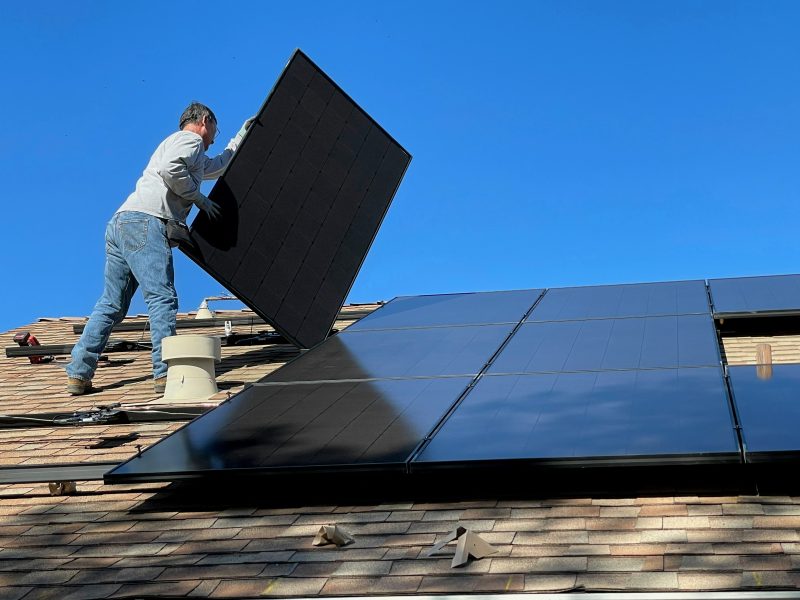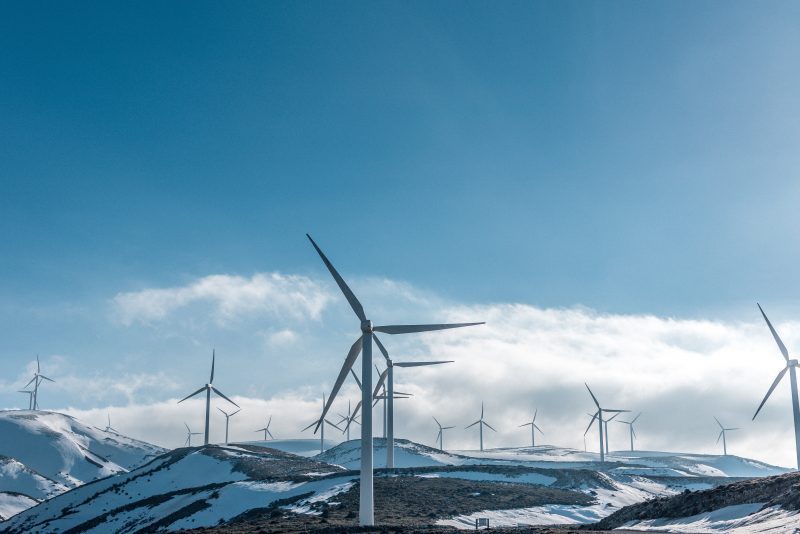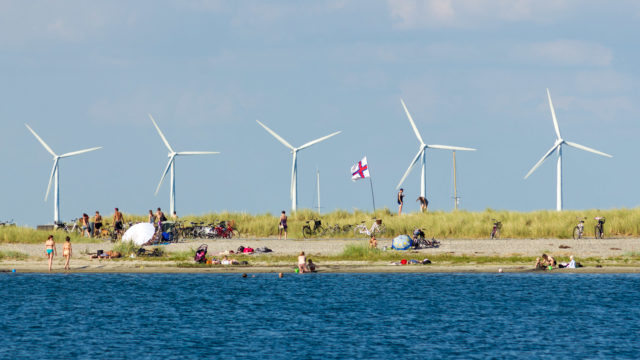“Affordability” should be the word of the year for green economy communications
Make it cheap, clean and bring the good quality jobs

Climate misinformation would have us believing that a green transition is a luxury not an inevitability. Despite millions invested in “climate delayism”, people across the world clearly understand that clean energy is a significant part of the solution to rising energy costs not part of the problem. Already, they see “clean energy” as closely cost-competitive with fossil fuels, with distinct advantages that are only strengthening over time. They also see significant cost consequences to restricting clean energy investment.
Our green economy attitudes polling highlights a consistent robust global consensus supporting clean energy investment. An overwhelming majority of respondents agree that investments in clean energy should be a top priority, even if it requires significant government spending according to 82% of respondents. There is strong and steady global agreement (88% in both Wave 1 2024 and Wave 2 2025) that more laws are needed to support renewable energy like solar and wind power.
Effectiveness of Renewable Energy Initiatives
When asked which actions would be most effective in protecting the environment and promoting sustainability right now, several specific renewable energy initiatives were highlighted.
- Financial assistance for installing renewable energy systems (e.g., solar panels, wind turbines) was selected by 29% of respondents as an effective action in Wave 2 2025, an increase from 27% in Wave 1 2024.
- Programs that create and promote employment in renewable energy, sustainable agriculture, and other green sectors are considered highly effective, chosen by 31% of respondents globally in Wave 2 2025. This action ranks as the third most effective action globally.
- "Making clean energy affordable for all households" saw its ranking fairly consistent across waves (NET Top 3). On the issue of affordability it’s worth looking at two other pieces of research that support and expand our findings.
According to polling by More in Common, “Britons feel the energy crisis is now permanent and have little confidence in government to fix it. 60 per cent of Britons don’t believe that energy bills will ever become affordable again. Just a quarter believe the government has a plan to bring down energy bills and awareness of government efforts to bring bills down is almost non-existent.”
Research by Potential Energy Coalition clearly shows “Americans place blame on political agendas ...Politicians and political agendas receive the majority of the blame, while corporations are in a clear but distant second place.” There is a political opportunity here for better policy that makes a real difference to the monthly bills that people pay. With routine bills creating the most amount of stress the politics, and the economics of renewable energy provide a real political opportunity for the politicians willing to take this on as an issue.
Renewables are expected to surpass coal to become the largest source of electricity generation globally by the end of 2025 or mid-2026 at the latest. The overall share of renewables in global electricity generation is projected to rise from 32% in 2024 to 43% by 2030. Variable renewable energy (VRE) sources (solar PV and wind) are set to almost double their generation share to 28% by 2030.
“ Ppolicy creativity to alchemise economic and political opportunity is what we need more of, now more than ever.”
Renewable energy is not just a crucial solution to major societal challenges, its increasingly being seen for its economic benefits for climate mitigation and geopolitical considerations.
Renewables inherently strengthen energy supply security because they offer resilience against price volatility and supply disruptions. Between 2010 and 2023, the deployment of non-hydro renewables significantly reduced fuel import needs, particularly in countries reliant on coal or natural gas imports. Without non-hydro renewables added since 2010, cumulative global imports of coal and natural gas would have been approximately 45% higher in 2023. This deployment has led to an estimated USD 1.3 trillion in savings on coal and natural gas imports for fuel-importing countries between 2010 and 2023.
To help further nudge the progress of renewables we need to build on the existing popular support for renewable energy. The public perception, at least among American audiences, is shifting to view clean energy as part of the solution to rising energy costs, not the problem. Already, 53% of Americans believe clean energy costs the same or is cheaper than fossil fuels. Renewable sources like solar and wind can provide electricity at prices 30–50% lower than plants powered by oil and gas. We need to further build that association between renewables as cheap and technology that is fit for the future.

Messaging around protecting what you love in the face of extreme weather still performs well in a cost of living crisis. We need to find a way to talk about renewable energy in a way that seems affordable and common sense. Renewable energy must be seen as clean and cheap. Critical to this is making the case for the upfront cost of “transitioning” to new clean energy infrastructure. People think “change” is expensive–and believe staying with the “default” is a good way to avoid expense.
Reminding people of increasing demand for energy, reminds them that we need to invest in the grid, so why not do it for the best outcome. We’re going to have to build something, so why not go for the clean and cheap option. If we take “do nothing” off the table, when people are choosing between building new fossil fuel infrastructure or building new clean energy infrastructure, it’s a much fairer fight. Choosing fossil fuels no longer feels like a cheap default option, it feels illogical and uneconomic. Choosing renewables is investing in the better option.
If we want to drive affordability perceptions, we can emphasise these attributes of attractive “affordable” energy.
- Local availability: fossil fuels are far away, clean energy is everywhere.
- Unlimited resource: fossil fuels are finite, clean energy is almost infinite.
- Proven technology: clean energy is now several decades old, and the price has fallen steadily over the years.
Australia will be rolling out a "Solar Sharer" program that provides at least three hours of free electricity per day during the middle of the day, starting in July 2026. The program is designed to use up excess solar power generated during the day and will initially be available in New South Wales, South Australia, and southeast Queensland, with expansion to the rest of the country in 2027. This is a great example of a popular policy that tackles affordability, leverages the benefits of renewables and is symbolic in defining how people feel about renewables.
The message from our latest wave of polling is clear: it is policy creativity to alchemise economic and political opportunity that we need more of, now more than ever.
- Jean McLean, GEC


